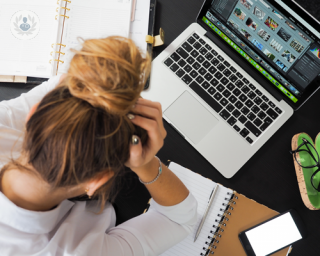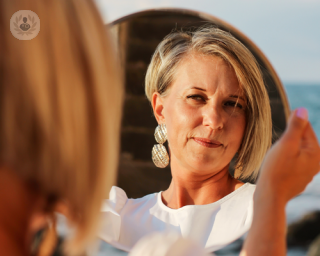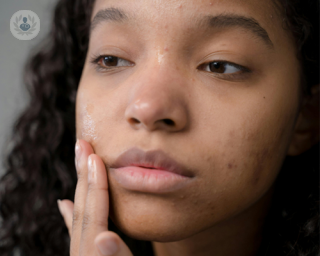What is self-esteem?
Self-esteem put simply, is how we feel about ourselves overall. It takes into account the self-love and positive regard you have for yourself. Hence, if you have healthy self-esteem, you would likely feel positively about yourself and about life itself too. Self-esteem develops over your lifetime, culminating from your various experiences and circumstances that eventually shape how you see yourself. Self-esteem comes from the opinions, value and beliefs you hold about yourself, which can be challenging to change.
What’s the difference between self-esteem and self-confidence?
Although these terms are often used interchangeably, they are not the same thing. Self-esteem, as described, is how we feel about ourselves, whereas self-confidence refers to how you feel about your abilities, which will vary between scenarios. Although they are different, they are related. To illustrate, if someone’s self-esteem improves, they are more likely to have increased self-confidence. On the other hand, it is also possible to have low self-esteem, but feel very confident about certain abilities you hold.
What is low self-esteem?
Low self-esteem is when, overall, you feel negatively about yourself and life in general.
What causes low self-esteem?
Everyone’s self-esteem is different, and factors that affect self-esteem will also differ too. The following are common factors that can precede low self-esteem:
- Being bullied
- Being abused
- Having mental health problems
- Stress
- Bereavement
- Work problems
- Body image issues
- Money problems
- Physical health issues
- Experiencing prejudice or discrimination
· Relationship problems (e.g. separation and divorce)
Low self-esteem can often begin during childhood where a child receives positive or negative messages from people such as their parents, siblings, teachers, friends, and other sources, such as social media . During childhood, it is often the negative messages that stick, which can be challenging to forget or let go of.
How can low self-esteem affect us?
Having low self-esteem will often make life challenges feel much more difficult to handle, whereas if your self-esteem is healthier, tackling the ups and downs of life can be more manageable. If you have low self-esteem, you might be more likely to avoid difficult situations or tasks. Having low self-esteem can also be harmful to our mental health, with problems such as depression and anxiety being related.
How can self-esteem issues be improved?
Self-esteem can be improved, and a good starting point can be to identify the negative beliefs you hold about yourself (e.g. thinking that you are not smart enough to apply for a new job). Equally, you should also identify things that you feel positively about yourself (e.g. that you are honest and reliable).
Other things that can help to improve self-esteem include:
· Build positive relationships and a support network
- Be kind to yourself
- Recognise your strengths
- Be more assertive
- Look after yourself physically
· Challenge yourself (e.g. don’t let your self-esteem stop you from something you want to achieve)
Bassa autostima
What is self-esteem?
Self-esteem put simply, is how we feel about ourselves overall. It takes into account the self-love and positive regard you have for yourself. Hence, if you have healthy self-esteem, you would likely feel positively about yourself and about life itself too. Self-esteem develops over your lifetime, culminating from your various experiences and circumstances that eventually shape how you see yourself. Self-esteem comes from the opinions, value and beliefs you hold about yourself, which can be challenging to change.
What’s the difference between self-esteem and self-confidence?
Although these terms are often used interchangeably, they are not the same thing. Self-esteem, as described, is how we feel about ourselves, whereas self-confidence refers to how you feel about your abilities, which will vary between scenarios. Although they are different, they are related. To illustrate, if someone’s self-esteem improves, they are more likely to have increased self-confidence. On the other hand, it is also possible to have low self-esteem, but feel very confident about certain abilities you hold.
What is low self-esteem?
Low self-esteem is when, overall, you feel negatively about yourself and life in general.
What causes low self-esteem?
Everyone’s self-esteem is different, and factors that affect self-esteem will also differ too. The following are common factors that can precede low self-esteem:
- Being bullied
- Being abused
- Having mental health problems
- Stress
- Bereavement
- Work problems
- Body image issues
- Money problems
- Physical health issues
- Experiencing prejudice or discrimination
· Relationship problems (e.g. separation and divorce)
Low self-esteem can often begin during childhood where a child receives positive or negative messages from people such as their parents, siblings, teachers, friends, and other sources, such as social media . During childhood, it is often the negative messages that stick, which can be challenging to forget or let go of.
How can low self-esteem affect us?
Having low self-esteem will often make life challenges feel much more difficult to handle, whereas if your self-esteem is healthier, tackling the ups and downs of life can be more manageable. If you have low self-esteem, you might be more likely to avoid difficult situations or tasks. Having low self-esteem can also be harmful to our mental health, with problems such as depression and anxiety being related.
How can self-esteem issues be improved?
Self-esteem can be improved, and a good starting point can be to identify the negative beliefs you hold about yourself (e.g. thinking that you are not smart enough to apply for a new job). Equally, you should also identify things that you feel positively about yourself (e.g. that you are honest and reliable).
Other things that can help to improve self-esteem include:
· Build positive relationships and a support network
- Be kind to yourself
- Recognise your strengths
- Be more assertive
- Look after yourself physically
· Challenge yourself (e.g. don’t let your self-esteem stop you from something you want to achieve)


Why is it helpful to get a diagnosis for ADHD?
Dr Chandan Aladakatti
2024-12-21
Getting a diagnosis for attention deficit hyperactivity disorder (ADHD) can be a significant and positive step for individuals who may have been struggling with symptoms that impact their daily life. A formal diagnosis provides clarity, validation and access to appropriate support and treatment. Mostrare di più


Self-esteem and how it affects somebody's life
Miss Kiki Iordanidou
2024-12-21
Self-esteem is a concept referring to how we perceive and value ourselves. It’s a fundamental aspect of our emotional and psychological well-being, influencing how we think, feel and act in everyday life. Self-esteem can range from high (positive self-view) to low (negative self-view), and it significantly affects multiple areas of life. Mostrare di più


How improving your self-esteem can lead to healthier relationships
Dr Kerry Ashton-Shaw
2024-12-21
Healthy relationships begin with healthy self-esteem. It’s easier said than done, however. So, how can we improve this essential part of the human psyche? Leading consultant clinical psychologist Dr Kerry Ashton-Shaw can help. She speaks to Top Doctors all about self-esteem in expert detail, considering the cycle that maintains low self-esteem and provides a helpful quiz we can take to get an indication of our levels of self-esteem. Mostrare di più


Understanding adolescent acne
Dr Mary Sommerlad
2024-12-20
Leading consultant dermatologist Dr Mary Sommerlad provides a detailed look at adolescent acne in this informative article. Mostrare di più
Medici esperti in Bassa autostima
-
Dr Matina Sotrilli
PsicologiaEsperto in:
- Terapia comportamentale dialettica
- Bassa autostima
- Ansia
- Depressione
- Disturbi alimentari
- assertività
-
Dr Isobel Horn
PsicologiaEsperto in:
- Depressione
- Bassa autostima
- Attacchi di panico
- Ansia
- Disturbo da alimentazione incontrollata
- Bulimia
-
Dr Edward Bloomfield
PsicologiaEsperto in:
- Ansia
- Depressione
- Disturbi mentali
- Bassa autostima
- Disturbo posttraumatico da stress
- Autostima
-
Dr Mary-Anne Smyth
PsicologiaEsperto in:
- Bassa autostima
- Bruciato
- Ansia
- Depressione
- Autostima
- Lutto
-
Gabriela van den Hoven
PsicologiaEsperto in:
- Attacchi di panico
- Depressione
- Bassa autostima
- Disturbi di regolazione
- Ansia
- Visualizzare tutti

The Fern Psychology
The Fern Psychology
Harley Street
No existe teléfono en el centro.
Se utilizzi questo numero di Top Doctors autorizzi al trattamento dei dati a fini statistici e commerciali. Per maggiori informazioni, leggi la nostra l’informativa sulla privacy
Top Doctors
-
The Fern Psychology
Harley Street, W1G Marylebone LondonEsperto in:
- Ansia
- Attacchi di panico
- Depressione
- Psicologia
- Psicosi
- Disturbo da Deficit di Attenzione e Iperattività





